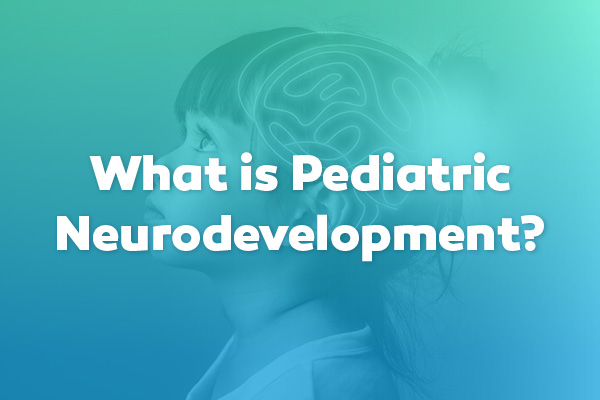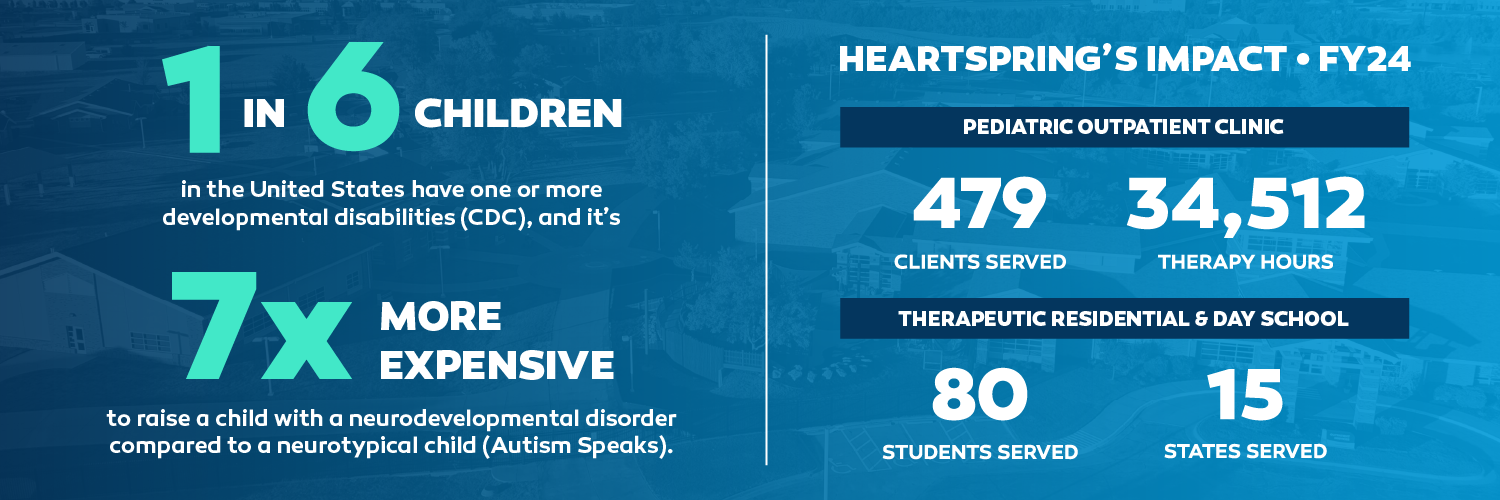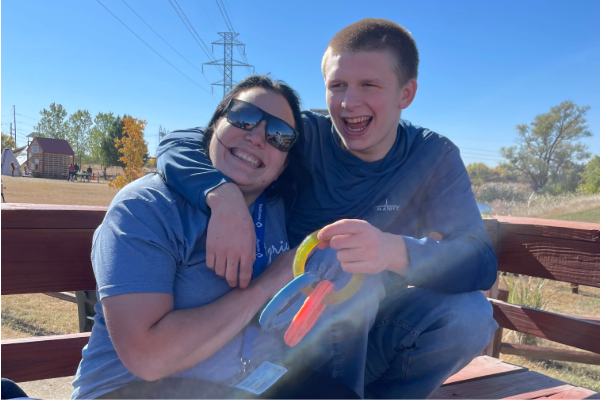2 MIN READ
Understanding Pediatric Neurodevelopment: A Growing Concern

Autism and neurodevelopmental delay or disability diagnoses are on the rise around the country.
In Kansas alone, autism diagnoses rose 324% while developmental delays rose 177% from 2005-2022 according to data from the Kansas State Department of Education.
While we don't have the answer as to why there’s a significant increase in diagnoses, there are ways to address children's growing need for care. Children evolve rapidly in their first few years of life, and Heartspring’s interdisciplinary therapies help develop effective communication, advance motor skills, and support learning.
Pediatric neurodevelopment refers to how children’s brain and nervous systems grow and mature from infancy through adolescence. This development encompasses critical milestones such as learning to crawl, walk, speak, and form social-emotional skills. These milestones not only shape a child’s ability to interact with the world but also lay the foundation for lifelong cognitive and physical health.
Every child’s neurodevelopment is unique, but most follow a general timeline for reaching these milestones. For instance, babies typically start sitting up around 6 months, walking with assistance around 12 months, and forming simple sentences by 2 years old. These milestones help parents and professionals monitor a child’s growth and identify potential concerns.
The American Academy of Pediatrics also recommends a developmental or autism screening for children aged 18 months or older if there’s cause for concern. Families can ask their child’s pediatrician for a screening. Additionally, physicians and clinicians should conduct developmental surveillance during regularly scheduled visits to identify children at risk for developmental delay and address developmental progress, concerns, and promotion.
When a child isn’t meeting developmental milestones, it may indicate a delay or disorder in their neurodevelopment. Common disorders include developmental delays, genetic conditions, autism, and ADHD. These conditions can stem from various factors, such as genetics, birth complications, or environmental influences. It’s important to understand that delays don’t always point to long-term challenges, but early recognition is key to providing the right support.
Parents noticing differences in their child’s growth should consult a pediatrician, who may recommend developmental screenings or therapies. Services like physical therapy, speech therapy, and occupational therapy can play a significant role in helping children overcome challenges and reach their full potential.
Early action can make a world of difference, helping children gain the critical skills they need for a happy, healthy life.
Heartspring is committed to providing therapies and special education for pediatric neurodevelopment so every family who walks through our doors can turn possibilities into realities.




